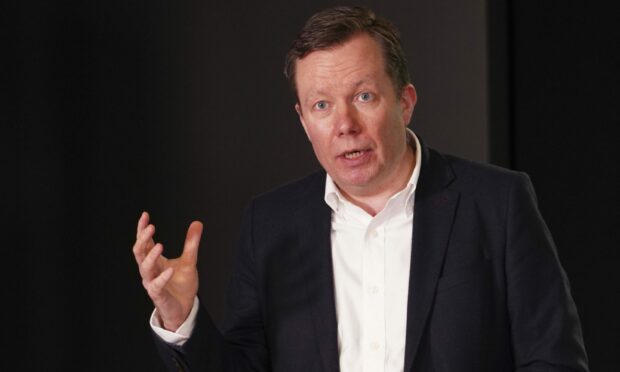Scotland’s national clinical adviser has defended the government’s international travel rules during the coronavirus pandemic following claims it is inconsistent.
Jason Leitch was questioned after the government decided to follow the UK government and add the Balearic Islands of Spain to the Covid amber list leaving the travel industry reeling as holidaymakers face a race home.
The move will force holidaymakers aged over 18 to cancel plans or self-isolate for up to 10 days upon return.
The islands will move onto the amber list from July 19, but on the same day new rules for people who arrive back from an amber country and have been double jabbed at least two weeks beforehand or are under 18 mean they will no longer need to self-isolate.
At the same time, Croatia and Bulgaria are being removed from the amber list and placed on to the green list.
Contradiction
On BBC Radio Scotland Mr Leitch and was asked why the government was hardening its approach to the Balearics.
It was put to him that the government’s international travel decisions lacked “consistency”.
He was asked to explain why Croatia and Bulgaria are being added, from Monday, to the green list.
Wile at the same time, Germany – where case rates are reportedly lower – is being left on amber.
Mr Leitch said the UK’s Joint Biosecurity Centre (JBC) provided the advice.
He said: “It’s a very complicated formula based on variants, public health response, vaccination rates, and case rates , but from there you have to think about hospital capacity, and all the other elements, and then the Joint Biosecurity Centre presents that to us and we present it to ministers.”
Vaccinating children
Clinical trials are under way to understand safety data and efficacy for vaccinating children under 16 years old.
The Joint Committee on Vaccinations and Immunisation (JCVI) who are the expert body responsible for advising the UK Government’s health departments on immunisation is due to advise the government soon.
Asked for his thoughts on vaccinating children, Mr Leitch said: “It was a tricky decision, that’s why we’ve given it to the boffins to help us.
“I think what might happen is they are going to look at the risks and there may be some groups they think is more risky than others, but I don’t know what they are going to say.”
When normal flu hits children
Public health officials believe the normal flu virus may have much more spread and impact in the coming autumn and winter season.
The Academy of Medical Science is warning health services may be badly hit.
Professor Leitch said: “The unknown is how much difference is made to miss a year of flu and RSV in lockdown.
“We still do not know the effect that will have this coming winter.”
Vaccination ‘slow down’
Pressed to explain why daily vaccination numbers averaging 23,467-per day had decreased from last week’s average of around 26,000, Mr Leitch said: “I would agree that things have slowed down a little bit.”
He said one of the reasons for this is “it is impossible to do second doses if first doses had not been done” – although he stressed people were not “getting fed up and failing to come back for their second”.
He said some young people care choosing to remain unvaccinated but the government was doing its best to reach them.
He said: “To get out of the pandemic here and globally we need big population immunity numbers. We have tried lots of communication in the country with young people through things like the Young Scot entitlement discount card, mobile clinics, fixed access clinics, and third sector colleges helping to spread the message.
“We really want this done.”

